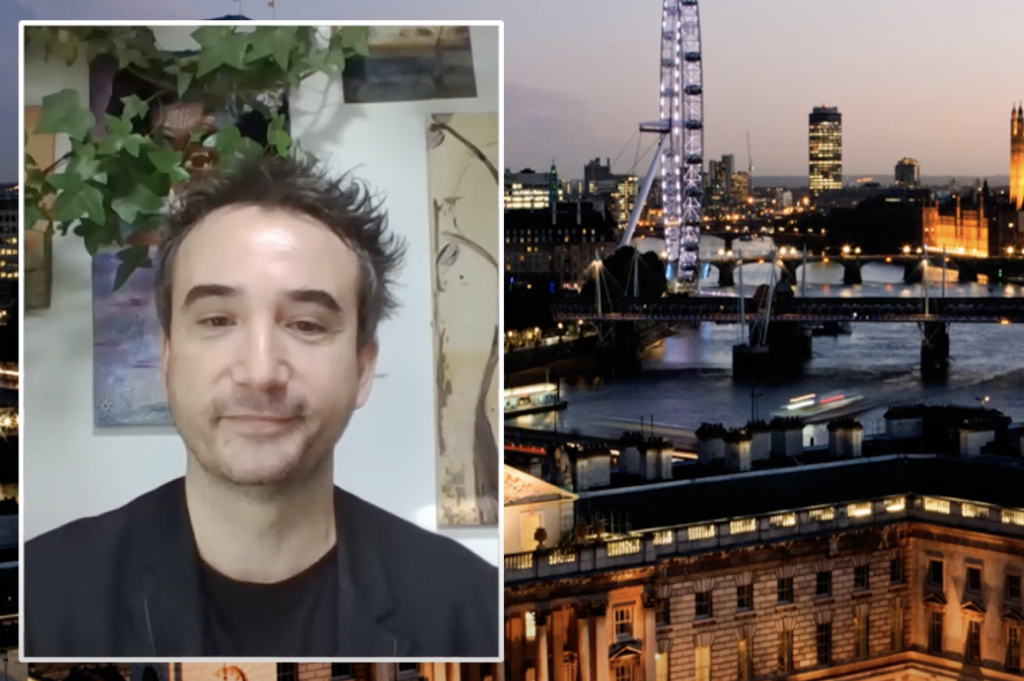Prof. Mischa Dohler for EAI as a part of our Distinguished lectures program presents: Smart Cities in the Era of 6G. The honorable Distinguished lectures program serves as an inspiration featuring great talks by the world’s most prominent researchers. Let us introduce to you our featured world’s top lecturers presenting a topic as our distinguished guest speakers.
There’s a big divide between the words Smart and City. On the one side, digital things, data, and technologies, IoT sensor actuators, 4G, 5G, the future 6G, and on the other side, city – roads, traffic, streets, traffic lights, and all the things you know from ‘real life.’ Can they combine and work together?
Challenge London
Liberating the space for cyclists and pedestrians that are scared to ride a bicycle in the Mega cities also means that the pollution will go down and people will exercise more (health benefits). How to do it? There are three challenges in front of the human race: in Urban engineering, Transport engineering, and Digital engineering.
Liberating the space for cyclists and pedestrians that are scared to ride a bicycle in the Mega cities also means that the pollution will go down and people will exercise more (health benefits). How to do it? There are three challenges in front of us: in Urban engineering, Transport engineering, and Digital engineering.
1 Urban engineering
Conceptionally looking at the topic, it is necessary to look at how easy is the accessibility of the ‘clean’ means of transport for people. What about what shall they do in special situations, and how well off are the disabled and the elderlies – anyone needing extra help?
Given the yearly population increase of 1%, you can expect a crunch in 2039 transportation in London in a Mega city with no cars (pre-covid calculations) – thus almost 20 years to resolve it even better by then. It is possible – people can do it from the capacity point! The ‘doable’ point is even possible, based on the exercises done by Prof. Dohler and his team, from the industrial aspect point of view. Supply chain-wise, even without trucks and vans present during daytime, you can set up the supply chain so that within half an hour, the supply will come where it needs to – and it’s not even that huge of a challenge (not even talking about running the city at night).
2 Transport engineering
What are the challenges in transport engineering, then? Low-hanging fruits would encompass modifying the escalators or the wheelchairs able to go down the escalators, creating better accessibility of the underground. Inside the underground trains, removing parts of the seats means increasing the capacity, allowing more people to travel. One wagon of the underground could even be used to ship goods!
New cargo bike design also introduces new possibilities, using green and ‘healthy’ energy.
It certainly does seem that it is theoretically feasible for a city like London to go fully green and run without daytime vehicles. What is more, the pollution – not only from the exhausts but also the toxins created by the wheels breaking, will go radically down. The cities will enjoy healthier people when overcoming the challenges and habits.
3 Digital engineering
Covid accelerated the city demographics changes even more then than they were happening until now. Working, community, home patterns change. With latencies of milliseconds in 5G, we can get rid of cables in industry halls, saving a lot of costs – and 6G will only improve that. In the world of G’s, it always takes one generation (e.g., the 1G) to truly embody what we wanted to do with the previous generation (2G).
The 6G will, therefore, have the full capability of binding the industry connectivity. In 6G, 1Gbps will be real, even if not knowing the why and the how at the moment (it will come, no worries). And that means 0.1-millisecond response from websites or sensors – and an immediacy we have been dreaming of.
A new internet as a natural sequence of the traditional and mobile internet will come, along with a so-called internet of skills. We are empowering machines – but, from Dohler’s view, we need to empower humans, transmitting talent. 6G will likely be the dawn of a human-centric era, underpinned by machines and AI facilitating yet-to-be-designed apps and services. We start introducing a holographic society emerging by putting in the fully holographic mapping of the human body and/or the environment.
A new internet as a natural sequence of the traditional and mobile internet will come, along with a so-called internet of skills. We are empowering machines – but, from Prof. Mischa Dohler’s view, we need to empower humans, transmitting talent. 6G will likely be the dawn of a human-centric era, underpinned by machines and AI facilitating yet-to-be-designed apps and services.
Let’s work together to make Mega cities green again!
_____
Professor Misha Dohler from the King’s College of London, a researcher ‘celebrity’ in the world of all things digital, is involved with the topic of Smart cities for 15 years already. In his video lecture – an overview of his research about digital technologies of 6G as well as Smart cities – you can hear Prof. Dohler talking about how he thinks 6G tech will evolve and whether 6G and Smart cities technologies actually have any synergy.
_____


